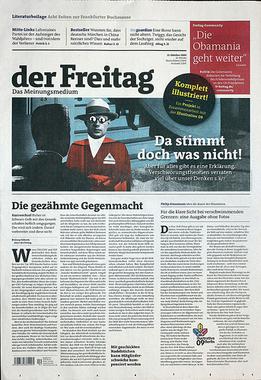Related Research Articles

The Communist Party of Austria is a communist party in Austria. Established in 1918 as the Communist Party of German-Austria (KPDÖ), it is one of the world's oldest communist parties. The KPÖ was banned between 1933 and 1945 under both the Austrofascist regime and the Nazi German administration of Austria after the 1938 Anschluss.
The Heimwehr or Heimatschutz was a nationalist, initially paramilitary group that operated in the First Austrian Republic from 1920 to 1936. It was similar in methods, organization, and ideology to the Freikorps in Germany. The Heimwehr was opposed to parliamentary democracy, socialism and Marxism and fought in various skirmishes against left-wing and foreign groups during the 1920s and 1930s. Some of its regional groups also opposed Nazism while others favored it. In spite of its anti-democratic stance, the Heimwehr developed a political wing called the Heimatblock that was close to the conservative Christian Social Party and took part in both the cabinet of Chancellor Carl Vaugoin in 1930 and in Engelbert Dollfuss' right-wing government from 1932 to 1934. In 1936 the Heimwehr was absorbed into what was at the time the only legally permitted political party in Austria, the Fatherland Front, and then later into the Frontmiliz, an amalgamation of militia units that in 1937 became part of Austria's armed forces.

The Kronen Zeitung, commonly known as the Krone, is Austria's largest newspaper. It is known for being Eurosceptic.
Der Standard is an Austrian daily newspaper published in Vienna. It is considered a newspaper of record for Austria.

Die Presse is a German-language daily broadsheet newspaper based in Vienna, Austria. It is considered a newspaper of record for Austria.

Kleine Zeitung is an Austrian newspaper based in Graz and Klagenfurt. As the largest regional newspaper in Austria, covering the federal states Styria and Carinthia with East Tyrol, the paper has around 800,000 readers.

The Styria Media Group AG, often referred to as just Styria, is an Austrian media company founded in 1869 and based in Graz. The company is one of the largest media companies in Austria, Croatia and Slovenia. Styria publishes a number of daily papers and weekly magazines, several news websites, and operates two radio stations and a television channel. They also incorporate seven book publishing companies. The group generated a market turnover of 411 million euros in 2022.

United Slovenia is the name originally given to an unrealized political programme of the Slovene national movement, formulated during the Spring of Nations in 1848. The programme demanded (a) unification of all the Slovene-inhabited areas into one single kingdom under the rule of the Austrian Empire, (b) equal rights of Slovene in public, and (c) strongly opposed the planned integration of the Habsburg monarchy with the German Confederation. The programme failed to meet its main objectives, but it remained the common political program of all currents within the Slovene national movement until World War I.

Wiener Zeitung is an Austrian newspaper. First published as the Wiennerisches Diarium in 1703, it is one of the oldest newspapers in the world. Until April 2023, it was the official gazette of the government of the Republic of Austria for legally-required announcements, such as company registrations and was also the official publishing body for laws and executive orders until 2004.

Profil, is an Austrian weekly news magazine published in German and based in Vienna. It was founded as a monthly magazine and has been in circulation since 1970. The magazine is sometimes considered the Austrian counterpart to Der Spiegel. In 2008 the magazine was described as the “most important Austrian news magazine”.
Falter is a weekly Austrian news magazine published in Vienna.
Jungle World is an Anti-German weekly newspaper published in Berlin, Germany and Austria.
WirtschaftsBlatt was the only daily financial newspaper published in Vienna, the Republic of Austria. The newspaper appeared every trading day from Monday to Friday in German. It was in circulation between October 1995 and September 2016.

Austria, formally the Republic of Austria, is a landlocked country in Central Europe, lying in the Eastern Alps. It is a federation of nine states, one of which is the capital, Vienna, the most populous city and state. Austria is bordered by Germany to the northwest, the Czech Republic to the north, Slovakia to the northeast, Hungary to the east, Slovenia and Italy to the south, and Switzerland and Liechtenstein to the west. The country occupies an area of 83,879 km2 (32,386 sq mi) and has a population of around 9 million.

Marburg's Bloody Sunday was a shooting that took place on Monday, 27 January 1919 in the city of Maribor in Slovenia. Soldiers from the army of the Kingdom of Serbs, Croats and Slovenes, under the command of Slovene officer Rudolf Maister, killed between 9 and 13 civilians of German ethnic origin, wounding a further 60, after the soldiers were attacked during a protest in the city centre. Estimates of casualties differ between Slovene and Austrian sources.

Der Freitag is a German weekly national newspaper established in 1990. It has a focus on politics, culture and economy, and is published in Rhenish format. The place of publication is Berlin. Its publisher and editor-in-chief is Jakob Augstein, who is also one of the main owners of Der Spiegel. The newspaper has won several awards, such as European Newspaper of the Year and World's Best Designed Newspaper.

Anton Pelinka is a professor of political science and nationalism studies at the English-speaking Central European University of Budapest. Prior to this appointment, Pelinka was a professor of political science at the University of Innsbruck, one of Austria's largest universities. During his career he has also served as a dean, with his most recent tenure in this role occurring between the years of 2004 and 2006 when he was dean of the Faculty of Political Science and Sociology at the University of Innsbruck.
News is an Austrian weekly news magazine published in German and based in Vienna, Austria. The weekly is the major news magazine in the country and has been in circulation since October 1992.
Tiroler Tageszeitung is a provincial daily newspaper published in Innsbruck, Austria. The paper has been in circulation since 1945 and is the newspaper with the widest reach in the Austrian state of Tyrol.
Volksstimme was a communist newspaper published between 5 August 1945 and 3 March 1991 in Vienna, Austria.
References
- 1 2 3 4 "Die Furche". Styria. Archived from the original on 11 February 2015. Retrieved 11 February 2015.
- ↑ Offenlegung Archived 18 July 2006 at the Wayback Machine Die Furche
- ↑ David Art (19 December 2005). The Politics of the Nazi Past in Germany and Austria. Cambridge University Press. p. 123. ISBN 978-1-139-44883-3 . Retrieved 11 February 2015.